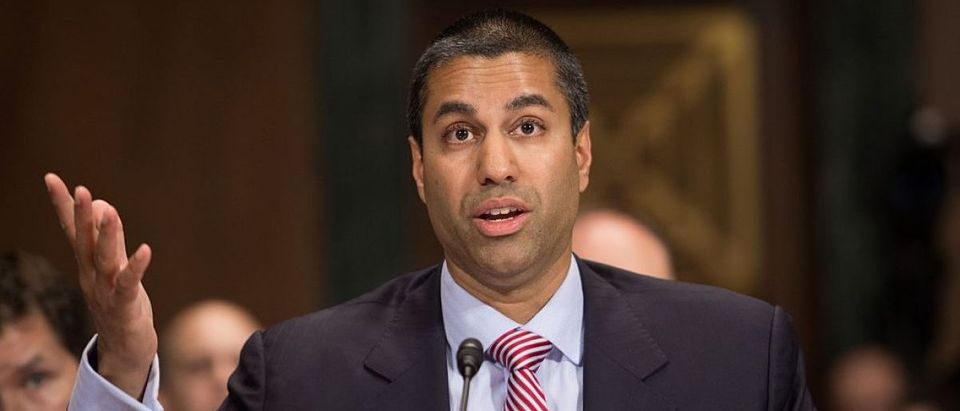Federal Communications Commission (FCC) Chairman Ajit Pai criticized a rule empowering net neutrality Wednesday, saying it cost the American people jobs, money and access to high-speed internet.
Net neutrality is the principle that all internet traffic should be treated equally. The rule enabling net neutrality is known as Title II and was first designed in the 1930s to help regulate a powerful monopoly. The FCC successfully reclassified the internet from a Title I service to a Title II in the last couple of years, which essentially gave it the authority to mandate and enforce net neutrality rules.
“So what happened after the Commission adopted Title II? Sure enough, infrastructure investment declined,” Pai said in a speech titled The Future Of Internet Freedom at the Newseum. “Among our nation’s 12 largest Internet service providers [ISPs], domestic broadband capital expenditures decreased by 5.6 percent, or $3.6 billion, between 2014 and 2016, the first two years of the Title II era. This decline is extremely unusual. It is the first time that such investment has declined outside of a recession in the Internet era.”
And it wasn’t just the large and more established ISPs who got hit, according to Pai. Mom-and-pop companies reportedly found the regulations almost unsurmountable.
From Pai’s speech:
Smaller, competitive providers have also been hit. For example, one small Arkansas ISP called Aristotle told Congress last year: ‘Before the [Title II Order] was adopted, it was our intention to triple our customer base’ and ‘cover a three-county area. However, we have pulled back on those plans, scaling back our deployment to three smaller communities that abut our existing network.’
Other small providers followed suit. KWISP Internet, which serves 475 customers in rural northern Illinois, delayed its plans to upgrade its network and increase consumers’ speeds from 3 Mbps to 20 Mbps. Wisper ISP, a provider that serves 8,000 customers around St. Louis, Missouri, also cut back its investments, resulting in slower speeds.
And just this week, 22 small ISPs, each of which has about 1,000 broadband customers or fewer, told the FCC that the Title II Order had ‘affected [their] ability to obtain financing.’ They said it had ‘slowed, if not halted, the development and deployment of innovative new offerings which would benefit our customers.’ And they said Title II hung ‘like a black cloud’ over their businesses.
Rather than using unilateral power, Pai plans on introducing a “Notice of Proposed Rulemaking” in which he will seek public input on an initiative to undo the Title II Order. (RELATED: FCC Wants To Get Rid Of One Of The Most Annoying Things In The World)
The FCC chairman says he believes this will allow for fair debate as well as an open and transparent process.
“In other words, this will be the beginning of the discussion, not the end,” Pai explained. Reverting back to the policies he sees as encouraging to business and an unrestrained internet will take some time.
Send tips to eric@dailycallernewsfoundation.org.
All content created by the Daily Caller News Foundation, an independent and nonpartisan newswire service, is available without charge to any legitimate news publisher that can provide a large audience. All republished articles must include our logo, our reporter’s byline and their DCNF affiliation. For any questions about our guidelines or partnering with us, please contact licensing@dailycallernewsfoundation.org.


